Zahner Lecture
Virtual Zahner Lecture: I Have Been Assigned the Single Bird
ZoomOn August 13th: “I Have Been Assigned the Single Bird: A Daughter’s Memoir” with naturalist, activist, and Florida writer Susan Cerulean. In this webinar, Cerulean will share readings and insights from her just-released memoir from University of Georgia Press. In Single Bird, Cerulean trains a naturalist's eye and a daughter's heart on the issues of caregiving and service, both of beloved humans and the natural world. She explores an activist's lifelong search to steward and advocate for wild shorebirds, particularly in the face of the climate crisis, as she also cares for her father at the end of his life. This webinar will be hosted on Zoom. Registration is required. To register, copy and paste this link in your browser: https://us02web.zoom.us/webinar/register/WN_P7lRdiP0QjOGYxWgOhagfg
Virtual Zahner Lecture: Microplastics
ZoomOn August 20: “The New Pollution: Microplastics in the Little Tennessee River and its Tributaries” with Jason Love, Associate Director, Highlands Biological Station. In this webinar, Love will give a brief overview of microplastic pollution and talk about his research on microplastics found in the Little Tennessee and Tuckasegee Rivers. This webinar will be hosted on Zoom. Registration is required. To register, copy and paste this link into your browser: https://us02web.zoom.us/webinar/register/WN_WpmT1wJJRDODsoybpEcz2w
Virtual Zahner Lecture: Monitoring Bird Populations at HBS
ZoomPhoto of Tufted titmouse by Greg Clarkson. On August 27th: "Monitoring Bird Populations at Highlands Biological Station: A Long Term Survey" with Mark Hopey, Southern Appalachian Raptor Research (SARR). In this webinar, Hopey will discuss the Highlands Biological Station’s newest research endeavor as it recently became home to a new bird banding station for the Monitoring Avian Productivity and Survivorship (MAPS) program – an initiative that began just over 30 years ago to assess trends in avian demographics in a wide range of habitats in North America. This webinar will be hosted on Zoom. Registration is required. To register, copy and paste this link into your browser: https://us02web.zoom.us/webinar/register/WN_s5vqC4uZS6q2Gfp-YFuwtg
Zahner Lecture 1
Highlands Nature CenterLecture 1 - Birds, Big Data, and Citizen Science: Understanding the Impacts of Global Change Featured Speaker: Allen Hurlbert, Ph.D.; Professor of Biology; University of North Carolina at Chapel Hill Date: Thursday, June 15th Time: 6pm – 7pm Cost: FREE Sponsored by Kim & Rich Daugherty and Kathy & Bestor Ward. As the world undergoes various facets of environmental change – from warming to habitat loss to shifts in seasonality – everyday people can help scientists understand the impacts on natural ecosystems through citizen science. In this talk, Dr. Allen Hurlbert will provide examples of how citizen science has enhanced our understanding of how global change is impacting birds, as well as insect bird food, across North America, and how you can help these efforts.
Zahner Lecture 2
Highlands Nature CenterLecture 2 - Native Plants for the Vegetable Garden Featured Speaker: Adam Bigelow; Plant Nerd and Guide; Bigelow’s Botanical Excursions Date: Thursday, June 22nd Time: 6pm – 7pm Cost: FREE Sponsored by Vicki & Donny Ferguson. Native plants benefit us, our gardens, and the landscapes and ecosystems we depend on. Learn about the benefits of native plants and the harm caused by invasive plants. We will discuss how native plants can attract beneficial insects, beautify vegetable and flower gardens, and provide nutrition to the dinner plate, and help fill all of the roles that plants provide to our vegetable gardens and landscapes.
Zahner Lecture 3
Highlands Nature CenterLecture 3 - Microplastic Pollution in Marine and Freshwater Ecosystems Featured Speaker: Austin D. Gray, Ph.D.; Assistant Professor of Biological Sciences; Virginia Tech Date: Thursday, June 29th Time: 6pm – 7pm Cost: FREE Sponsored by Jennifer & Forrest McConnell and Jennie Stowers. Plastic pollution poses one of the greatest global risks to freshwater and marine ecosystems. The formation of microplastics from plastic debris has been shown to alter aquatic ecosystems by disrupting biota populations. In this talk, topics surrounding plastic pollution, microplastic occurrence and distribution, toxicological impacts of microplastics, toxicokinetic aspects of microplastic uptake and depuration, and microplastic formation rates in marine and freshwater habitats will be discussed.
Zahner Lecture 4
Highlands Nature CenterLecture 4 - The Geology That Has Shaped the Highlands-Cashiers Plateau Featured Speaker: Bill Jacobs, Geology Enthusiast and Author of Whence These Special Places – The Geology of Cashiers, Highlands & Panthertown Valley Date: Thursday, July 6th Time: 6pm – 7pm Cost: FREE Sponsored by Anne & Dick Goodsell: The Claude Sullivan Geology Initiative The Highlands-Cashiers Plateau is a unique landscape, with high valleys, an extraordinary array of waterfalls and mountains, and rich biodiversity. In this lecture, we will explore the geologic processes, stretching back over 500 million years, that have created the Plateau and shaped today’s special landscape. Our speaker will use concepts and language comfortable for the non-scientist and will discuss how geology, some of it ancient and some much more recent, has determined the character and appearance of both the broader Plateau and many of its specific mountains and waterfalls.
Zahner Lecture 5
Highlands Nature CenterLecture 5 - History of National Forest Management in the Chattooga River Watershed, and the Compelling Case for a New Mission for the Forest Service Featured Speaker: Buzz Williams; Emeritus Executive Director & Program Specialist, Chattooga Conservancy Date: Thursday, July 13th Time: 6pm – 7pm Cost: FREE Sponsored by Bryding Adams & Bob Rathburn, Lynda Anderson & Ken Conover, Margie Bauer & Jim Parker, Janet & Scott Clarke, Leslie & Jim Costa, Diane Lennox & Paul Manos, Helen & Russ Regnery, and Dollie Swanson. National forest lands in the Highlands-Cashiers Plateau encompass a very sensitive and ecologically rich landscape. These forests are critical for recreation, preserving biological diversity, protecting drinking water supplies, producing clean air—and now, for fighting climate change. These forests are managed by the Forest Service under the US Department of Agriculture and are subjected to intensive logging and cultivation as tree crops. Recently, the Forest Service decided to cut down rare old-growth trees and increase the amount of logging on public lands in western NC. Scientific research indicates that logging on federal forests is a substantial source of carbon dioxide emissions into the atmosphere. Recent studies also found that one of the best ways to mitigate the effects of climate change is by restoring and protecting mature and old-growth forest ecosystems, which store large amounts of carbon. This talk will provide an overview of national forest management in the Chattooga River watershed, and why mitigating the effects of climate change requires a new mission for the Forest Service—one that prioritizes protecting and restoring a network of mature and old-growth forest ecosystems, to ensure biological diversity and management aimed at fighting climate change.
Zahner Lecture 6
Highlands Nature CenterLecture 6 - Bird Talk: An Exploration of Avian Communication Featured Speaker: Barbara Ballentine, Ph.D.; Associate Professor; Western Carolina University Date: Thursday, July 20th Time: 6pm – 7pm Cost: FREE Sponsored by Miriam & Vernon Skiles and Mary Todd & Jimmy Davis. Birds use acoustic, visual, and even olfactory signals in social contexts that are important for successful reproduction and survival. Signaling works because it offers advantages to both the sender and receiver. Understanding how signals are used by birds to communicate provides insight into the amazing lives of birds.


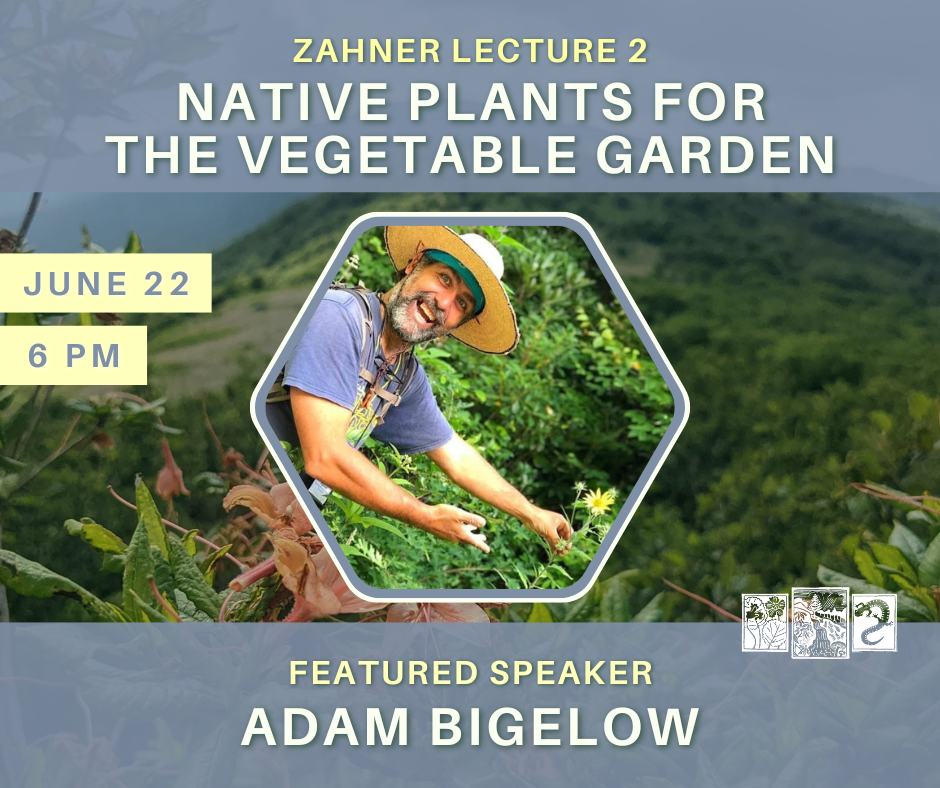
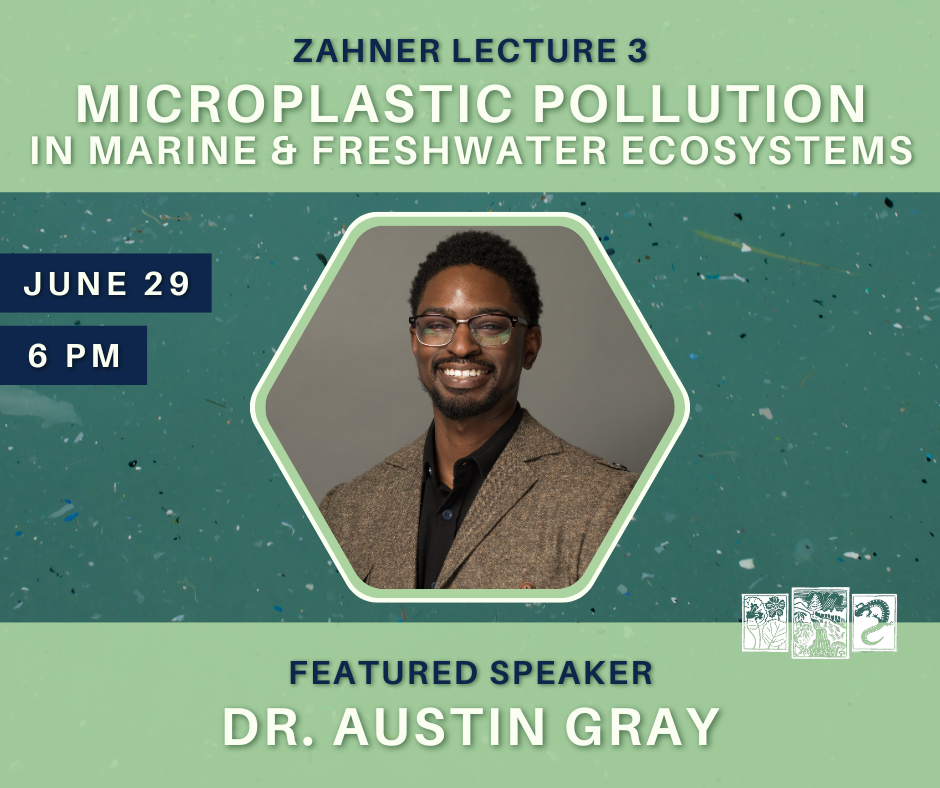
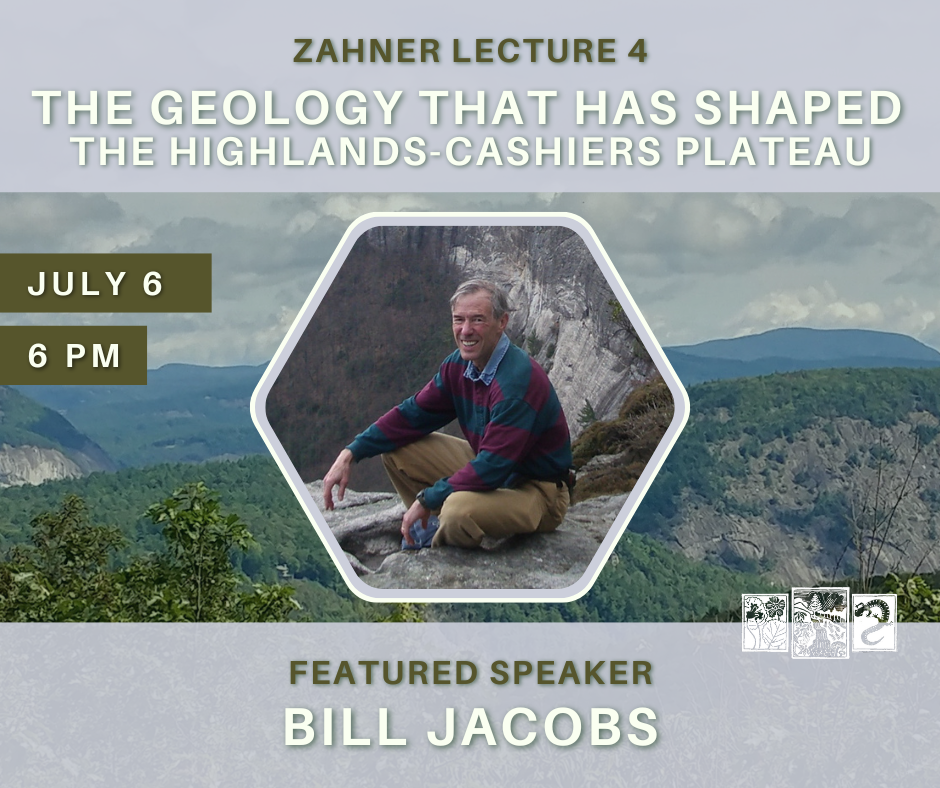
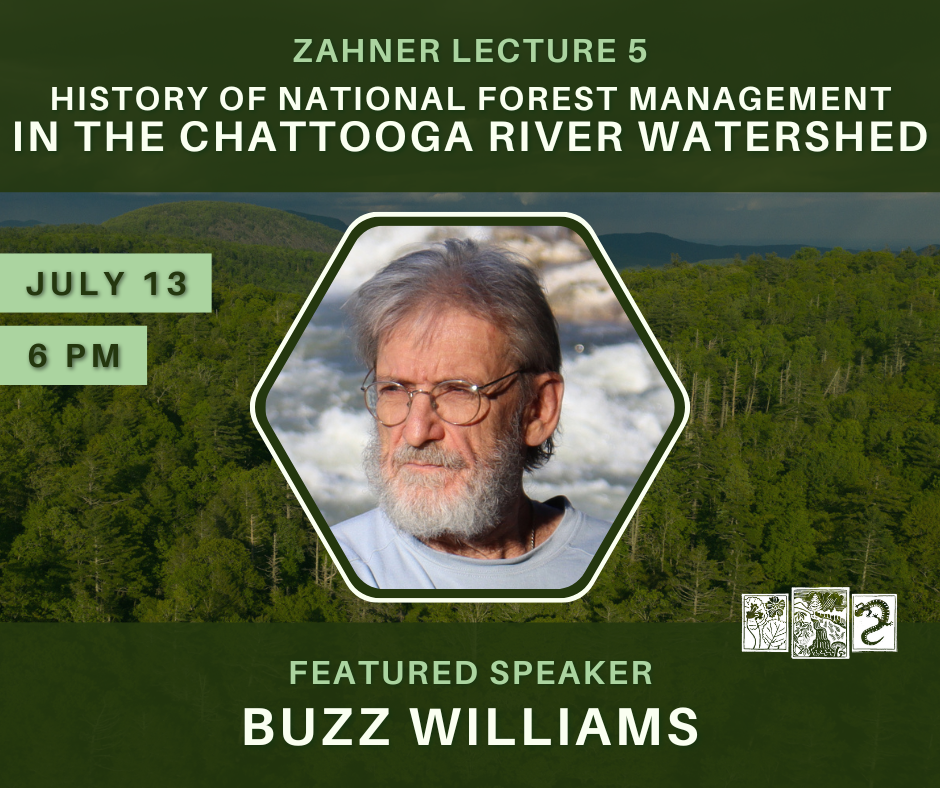
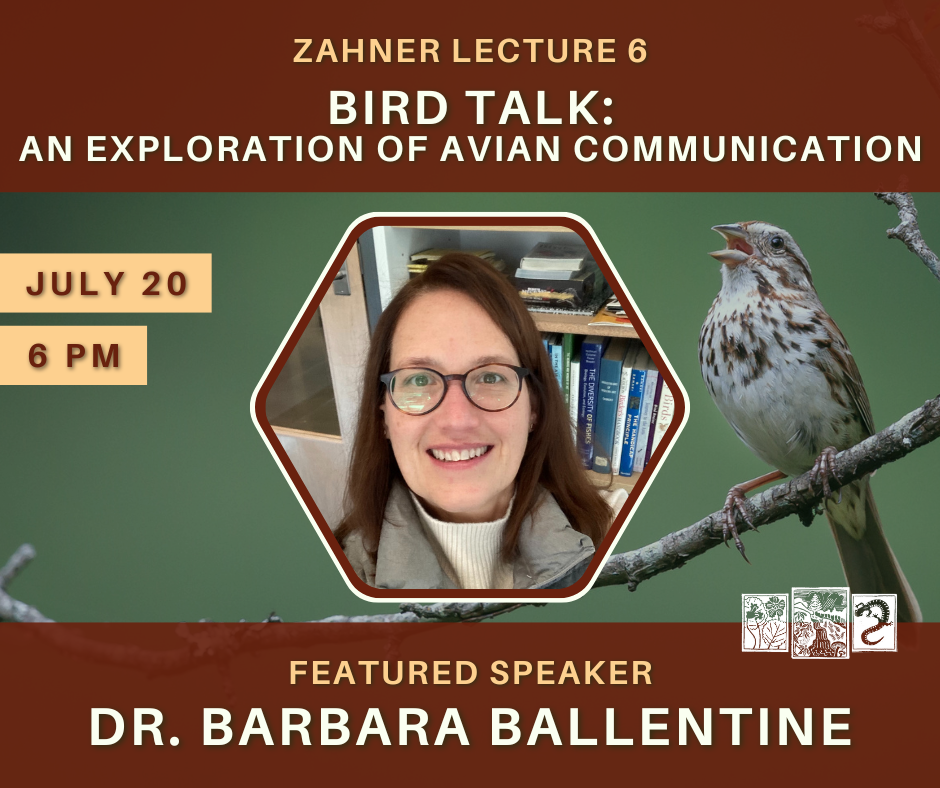
Recent Comments